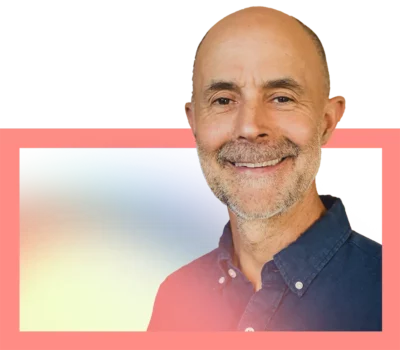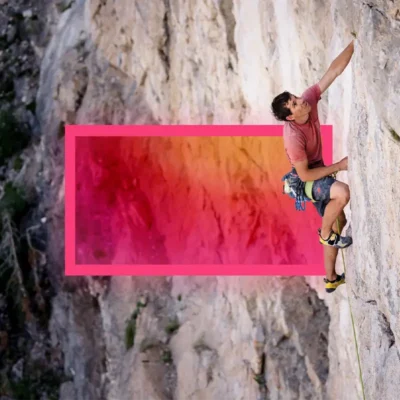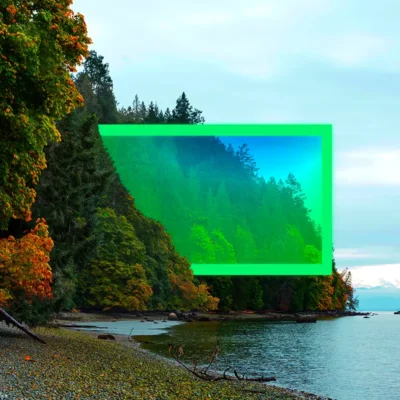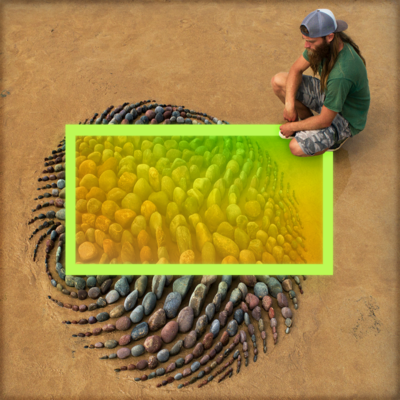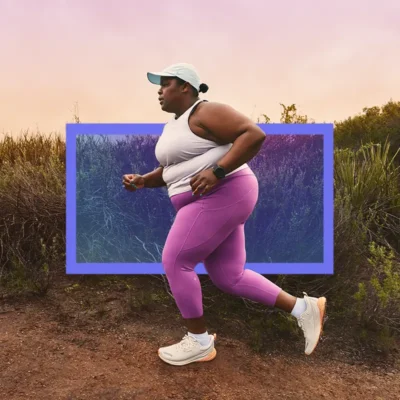What deep listening unlocks for me
As a boy in Oxford, Henry Shukman seeks refuge from a painful childhood by disappearing into poetry, immersing himself in nature. But the beauty and clarity he finds there is only fleeting. A series of visits with a mysterious old family friend help him to understand that experiencing beauty — and its extraordinary gifts — doesn’t have to be a chance encounter. In fact, it could become a guiding principle of his life. Through listening deeply, she shows him how to unlock beauty at every moment.
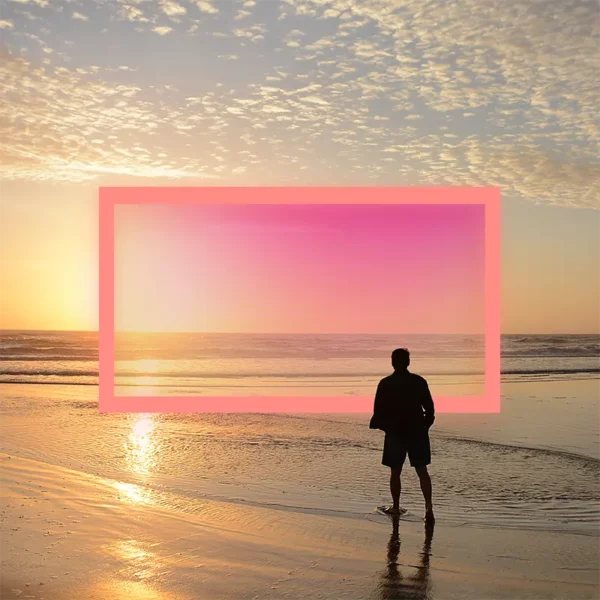
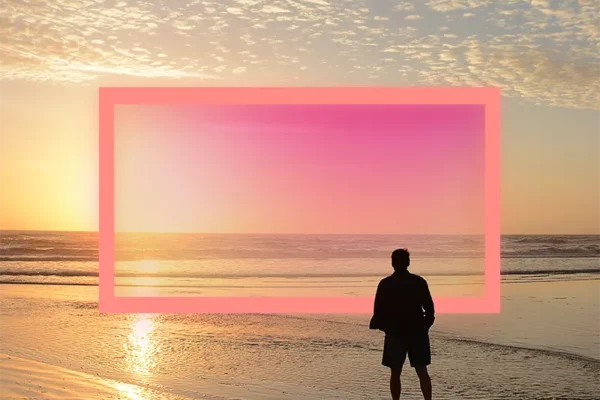
Table of Contents:
Transcript:
What deep listening unlocks for me
HENRY SHUKMAN: And in this moment, I feel absolutely galvanized. Whatever that strange encounter was on the beach, it wasn’t just random. It was a recognizable human experience. It didn’t need to be locked away in a chamber in my memory. Flora helps me realize that finding awe and paying attention and feeling washed by love can even become a compass heading in life.
ROHAN GUNATILLAKE: As a boy in Oxford, England, Henry Shukman found refuge from chronic eczema through poetry and being in nature. But the beauty and clarity he found there was fleeting. A series of visits with a mysterious old family friend helped him to understand that experiencing beauty — and its extraordinary gifts — didn’t have to be isolated or chance encounters. It could become a guiding principle of his life. Through listening deeply, she shows him how to practice this.
In this series, we combine immersive first-person stories, breathtaking music, and mindfulness prompts so that we may see our lives reflected back to us in other people’s stories. And that can lead to improvements in our own inner lives.
From WaitWhat, this is Meditative Story. I’m Rohan, and I’ll be your guide.
The body relaxed. The body breathing. Your senses open. Your mind open. Meeting the world.
SHUKMAN: I get happy when Flora comes to see us. Her visits are rare, but memorable. The wife of a highly respected philosophy professor, she wears colorful patterned dresses and shawls, and strings of clinking beads when she sashays into our rather ordinary home in Oxford, England. My parents are professors of Russian Studies. We have a basement family room, with a kitchen and dining area at one end, and a sofa and TV at the other. As we sit around the dinner table on faded wicker chairs, Flora tells us stories of mountains and castles from her homeland Transylvania, which I know only from Dracula.
While my parents clear the dishes Flora leans over and looks at me. Her eyes are black and bright, penetrating, alive. In her subtle, musical accent, she asks, “what are your deepest loves in school, Henry?” I am seven years old, and no one asks me probing, uninhibited questions like this. There isn’t much I love about my life, mostly because I suffer from the intense discomfort and shame of chronic eczema. I hate this skin disease. It leaves itchy red sores and gashes on my hands, legs, and back. I can’t play soccer or any sport where I might touch someone. I can’t wear short-sleeved shirts. But I immediately know the answer to Flora’s question: My deepest love? “Poetry!” I say. Flora listens deeply. Her curiosity affirms my own interest.
Flora smiles and pulls out her well-used copy of the I Ching Book of Changes. It’s an ancient Chinese text. She uses it to read my fortune. This would usually seem outlandish in the academic world in which I grow up. But Flora’s presence makes my parents relax their rational stance. We delight in her predictions and laugh together. But looking past the twinkle in her eye, I know a part of her takes it seriously: the possibility that there may be wisdom in the world completely outside my rigid English schooling.
Things at home take a turn for the worse. My father leaves, and my parents divorce. When he remarries, it’s so hard for my mother. Our home becomes chaotic, full of unhappiness. Flora still comes by from time to time. When she swans into the kitchen, I can sense her bright and generous presence amidst the gloom. I see her sitting in the kitchen listening deeply to my mother. She looks out for her, and that makes me smile.
In my teenage years, I continue to love poetry. I wander into the cool stone library and pore through Shakespeare, Coleridge, and Ted Hughes. I can see in great lines of poetry that there’s a way of deeply seeing something we would otherwise overlook. I try writing my own, scratching out lines about a train station or a walk around a lake. By deeply seeing these things, by expressing what I see, I can for a few moments escape my itchy body and our tense household.
After high school ends, I decide to take a gap year. It’s 1981, and I yearn to be outside of England to see vibrant colors and get my hands dirty. I’ve been scribbling poems over the years, and I have a vague notion to also write a book about these travels and in that way of 18-year-olds, I think, why not? I begin my travels in Argentina, working on a cattle ranch near Buenos Aires. The place is beautiful, like an island of dark trees amid the vast grasslands of the Pampas. It’s hard, tiring, satisfying physical work in the dusty fields. We go out at dawn, weeding bean fields, fixing miles of fences, herding cattle. At dusk, I come home to the bunkhouse and peel off my work clothes. A few months in, I notice an astonishing fact: the eczema is disappearing. I stare into a mirror, all my skin is perfectly unblemished, as if healed by a magic elixir. The eczema is really disappearing. For the first time in my life since I was 6 months old, I’m free of it. I am free.
After months of working on the ranch during the day and on my book at night, I load up my aluminum-framed backpack and take off to travel through South America. I relish how travel makes my encounters seem brand new. I practice seeing deeply, listening deeply, through my young poet’s eyes. I learn how to find beauty when I take the time to look for it. I spend a lot of time in the backs of old trucks, open to the sky, rattling across the spectacular landscapes of the Bolivian highlands. I cross a great salt lake. It resembles a mirror that turns extraordinary colors at dawn and sunset, like some visionary land not quite of this earth. And when I do all this, I feel alive. Toward the end of the year, I’m running low on funds, sleeping in the cheapest hostels I can find. One evening I cobble together some Ecuadorian sucres and hire a little boat to take me to an uninhabited island off the coast not too far from Guayaquil. It’s just a 10-minute ride. I ask the boatman to leave me there and come back just after sunset. I have no spiritual aspirations, no mystical inclinations. I just want to soak up some peace before heading back home to university.
Once the boat motors off, I’m all alone on this little 200 yard long stretch of sand with a few rocks. I look out to sea. The sand is warm and soft, under my feet. The sun is probably three or four fingers off the horizon. Its rays cast a great path of light on the ocean surface. I’m just staring into this great highway of light, this dazzling light on the water. It’s so bright it’s hard to keep my eyes open. I squint and blink but keep watching the swath of light, and I notice how very dark the water is on either side of it. “Well, is the water black? Is the water white?” I wonder about it. “It’s neither,” says a voice inside my head. “It’s transparent, of course. It’s water.”
Then something totally unexpected happens. Somehow in the midst of wondering about the light, suddenly I am no longer a separate consciousness registering what it is seeing. I just am just part of this whole scene. I’m not in any way separate from it. Everything disappears, and there is just a boundless, scintillating, emptiness. There is no time. There is no space. And, despite being both stone-cold sober, and an avowed atheist, I feel unimaginably blessed.
And I think to myself, “this is so beautiful.” And at this moment I recognize that I’m myself again. Henry Shukman is back. But something is different. I feel like I have a sort of flame of love pouring up through my chest, and it just keeps pouring and pouring. I feel like I’ve come home to some ultimate kind of home. To the point where I think to myself, it doesn’t matter if I die tonight, I will die completely fulfilled. And my 19-year-old self doesn’t understand this experience at all. I don’t know what to make of it or do about it. It is all totally outside my frame of reference. I just know it feels real.
Sometime after returning home I sit in a pub with some university friends in central Cambridge. It’s busy and dark, with low ceiling beams and small tables. Our table is crowded with pint glasses sporting varying degrees of foam. The place is buzzing with tipsy, happy, young humanity. But I feel completely out of sorts. I feel like an alien. And I feel scared by my own sense of alienation. I can’t even bear to join the lively conversation with my classmates. Even sitting in the middle of it all, I feel totally isolated.
In Ecuador, the lightness and freedom and love lingered for a few weeks. Then I journeyed back home. And instantly, it was gone. I started to feel my skin itching. The eczema’s coming back. Now, halfway through university, the disease is raging. At the pub, I’m tugging my sleeves over my hands so you can’t see all the raw, open skin. It’s on my face now as well, I can’t hide it here.
I trudge onward with my studies. I finish school and enroll in a PhD program in Classics in London, following in the academic lineage in which I was raised. The manuscript from my travels in South America languishes in a drawer. I’m languishing too. I don’t even feel my usual pleasure of escaping into books. Every time I read a scholarly treatise on the Greek Poet Homer, I realize how little I know and how much more I have to read. I’m overwhelmed. I dread it. But I’ve chosen this path. I’ve completely lost that baffling sense of beauty and aliveness on the deserted beach in Ecuador. How do I find that spaciousness in my daily life? I’ve forsaken it.
GUNATILLAKE: Have you had an experience or time of flow in your life which drifted away, but you then yearned to recreate? I certainly have. Can you bring it to mind, and let it be here without the need to grasp or mourn it?
SHUKMAN: My mother reminds me that Flora, now divorced, lives in a flat in Primrose Hill. Flora! I can’t imagine what a 24-year-old and an 80-year-old might have to say to each other, but encouraged by my warm childhood memories, I decide to pay her a visit. Her flat sits in a red-brick apartment block. It’s tiny — a studio with a bed against one wall and a rich Turkish rug on the floor. The Greek chicken stew bubbling on the stove smells delicious. It reminds me of how unhealthy my own diet has become. We sit at a small round table beneath the window. Our plates rest on a heavily embroidered tablecloth. One wall is all bookshelves. The rest are covered with photographs and paintings by friends of hers.
Flora’s hair is gray now, but her eyes, wide awake, still take me in with delight and keen interest. She still wants to know how I am, what I love. This is not small talk. She wants to go deep.
“And why are you doing all this study of Homer?” she asks.
“Why do you think you’re not happy?”
“What do you really want?”
She has no qualms about diving in to what really matters. After she asks each question, she pauses for the answer. Her interest is deep. Genuine. Whatever I say is really being heard. The spaciousness I find in Flora’s face encourages me to go deeper. I don’t know what I’m going to say in advance. Through her listening, I open up to what I really think. The questions don’t feel intrusive. In fact, I feel relieved. I feel cared for.
I’m honest with her about my academic struggles. My eczema. The shame I feel about being depressed. Why can’t I be more sociable? More gregarious? Flora hears my yearnings. She pays deep attention to me.
This becomes the first in a series of visits to Flora’s home. When I return each time, we start with some minutes of meditation. This is new to me. I’m a pretty skeptical young man, but I know her intelligence is behind it. I enjoy the lightness of it. I enjoy entrusting myself to a bit of her hocus pocus. It feels nourishing.
One evening, Flora shows me a book by a friend. It’s a photographic study of a single ordinary grassy English field, captured from numerous angles. She conveys how much care one can show a single piece of land. I’m struck again by how attentiveness — as with poetry — can yield so much beauty.
The conversation shifts, and she asks me questions about school and my research. I gripe about it, about the feelings of overwhelm, my despair. I have lost the beauty, the marvel, the wonder that once enlivened my imagination in Homer’s poetry. Working on my dissertation now, I feel lost in dry academic weeds.
Suddenly she asks: “Have you ever experienced life in a really different way?”
And immediately the beach in Ecuador comes to mind. I tell her how time stopped, and I became one with everything and filled by a sense of infinite happiness. I’m self-conscious describing it. Does she think I’m crazy? I knew I’d seen something true then — but in the company I keep, no one seems to know about it. In fact, I’ve never told anyone about it. Will she think I’m mad? But Flora’s eyes light right up. She nods and says, “Ah!” She says it in a way that illuminates the whole room. She understands exactly what I’m saying.
And in this moment, I feel absolutely galvanized. Whatever that strange encounter was on the beach, it wasn’t just random. It was a recognizable human experience. It didn’t need to be locked away in a chamber in my memory. In her way, Flora helps me realize that finding awe and paying attention and feeling washed by love can even become a compass heading in life.
GUNATILLAKE: Finding awe. Paying attention. Feeling washed by love. Which of those most calls to you? Which will you allow to be a compass for you?
SHUKMAN: “Why don’t you go back to that book project you loved? Flora asks one evening. “Revise it. Finish it.”
Almost everyone I know from my parents to my flatmates are academics for whom there is one track to tenure. But her interest in my writing and in my inner life makes it seem like being a creative person is a perfectly reasonable choice. She knows lots of creative people, friends who are successful and talented and fulfilled. It is possible. Just as she also helps me understand that living a creative, attentive life can help us find brightness and beauty in nearly every moment. This is how we come most alive. But I still don’t know how.
Sitting at the small dining room table, Flora shares with me the most despairing experience of her own life: When her husband the philosopher leaves her after 40 years for a younger student. She’s in Greece at the time, and she becomes paralyzed by shock and grief. She can’t move for days. Finally, she tells me one night as we finish a fish tagine, a voice comes clearly into her head and says: Walk. Just walk. And she listens. She puts on her shoes, and she goes down to the street in Athens. And she picks a direction. “I just put one foot in front of the other,” she says. “Just one foot and another. And I kept going.” She walked aimlessly for days. And this is how she slowly begins the process of healing. Her words give me a deep sense of hope for the despair I’ve found myself in.
I want more than anything to be open to my own healing, to regain that lost sense of beauty and belonging I experienced during my travels in South America that culminated at twilight in Ecuador. I want to see the world anew. And now I see how. One foot in front of the other. At Flora’s suggestion, I start therapy and begin to study meditation. I start changing my diet and finding new ways to manage my health. I pull that manuscript out of the drawer, and I start revising it. Page by page. I send it to a publisher. They accept it. I quit my PhD program. I continue to write poems.
Poetry becomes the vehicle through which I listen deeply and meet the world more vividly. Through it, I feel connected to the fabric of a single moment. I publish another book. I keep on meditating, every day. Step by step, I slowly align with that compass point. The one that says: when you listen and look deeply, you find beauty. A beauty that can last beyond just a moment. It is through attention — to the world, to each other — that we come truly alive. Healing follows. Hope becomes real.
Rohan’s closing meditation
GUNATILLAKE: Thank you so much Henry
In poet David Whyte’s Meditative Story, We become the places we love, he too explores the power of place and unique connections to utterly change us. David shares about a lifelong friendship which takes root in the magical and windswept landscape of Wales, where place names are poetry, and where memories live long in the rolling hills. I invite you to follow the link in our show notes to explore David’s episode.
There is so much in Henry’s story, but I thought it might be helpful to give some context to what happens to him in Ecuador and what follows. On the tiny island out there, he has what I’d call a mystical experience. His mind already bright and pliable and open from the travel, being in this quiet and remarkably beautiful place, something clicks, and he flips into a form of consciousness where there is no real differentiation between self, other, here, there. In that state, time isn’t a thing, nor really is anything else. And there is a lot of joy and love. After a while his sense of self clicks back in, and although his afterglow lasts for a while, this state does not sustain for long. But most importantly the memory of it remains and the certainty that another way of experiencing life is possible. There are different names in different traditions for what happened, but whatever we label it, it clearly became a beacon for Henry’s future life.
This kind of peak experience is not as rare as some people might think. And that it was catalyzed by being in nature is not a surprise to me. It’s why nature mysticism is a thing, it’s why we feel different after we’ve spent time hiking or in the wild.
After his experience, Henry doesn’t really have a context for it. No one who can explain what it was, or how to access that kind of experience again. It’s not until Flora guides him to healing and back to writing, that his journey begins.
I’ve met lots of people over the years who get into meditation to help integrate a spiritual experience like Henry’s. It’s also not uncommon for people to have a real dip afterwards.
One of my favorite ways of understanding meditation is that it is all about learning to experience life through different lenses. We spend so much of our life looking through one lens, that of me and my self here, and everything else, everything other over there. So through meditation practice, we learn to put on other lenses. And we can learn to access the kind of experience that Henry had, and others, reliably by ourselves. Importantly, to me at least, it’s not that these mindstates are inherently better or truer than our regular day-to-day self, but when we see again and again that there are other ways of being, our belief in the solidity of the day to day becomes less of a thing, and there is a great deal of freedom in that.
There is already so much wisdom in Henry’s story. So for our closing meditation together, what I’d like to do is point us to the theme of deep listening, and paying attention to the details. It’s something Henry did alone, and also something he did with Flora, and Flora with him.
All I’m going to do is repeat some of my favorite words from Henry’s story. And what I’d like you to do is to listen deeply. Pay attention to the words. Pay attention to what arises within you in response to the words. And if you can, follow the chain, and pay attention to what arises in response to what arises. Here goes…
What are your deepest loves?
I’m free of it. I am free.
What do you really want?
Just one foot and another. And I kept going.
I’ve leave you today with two invitations, in honor of Henry’s journey. The first is to get outside and spend some time open to nature. If there’s a big sky, all the better.
The second invitation is to read a poem. I’m definitely digging out my illustrated William Blake book once I’m done here.
Extra points if you read the poem out in nature.
Thank you again Henry. And thank you.

